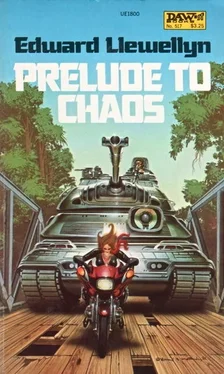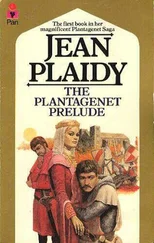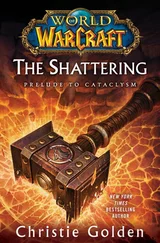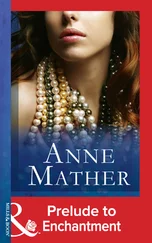“Want to take a ride into town?” Barbara was standing in the door of my workshop. “Truck’s leaving in half an hour.” “Sorry!” I gestured toward the bench. “I promised to fix Jehu’s radar by tonight.”
“It was Jehu who sent me to ask. He’s the trader. Sam and I are driving. But there’s room for a third. Especially if the third has a gun.”
“You’re expecting—?”
“I’m just passing on Jehu’s message. Trailer’s loading from the lobster pens. We’re taking the Brinks.” She gave me a cool stare and turned back toward the wharf.
It was the first time that Barbara and I had exchanged more than a few words since my arrival. As Judith had remarked, Barbara was out of my age group—a hint that had kept me away from her through the winter. But if we live as men we dream as boys, and Barbara’s face often floated into my dreams, usually regarding me with disdain. Had I really been her age I would have been chasing her ass with the other youngsters; a prize which few of them seemed to win.
Now she had thrown down a clear challenge. The Settlement owned five large trucks and one second-hand armored car—the Brinks. A beast of a vehicle whose only virtues were its armor and an ability to go cross-country. As rural roads became more dangerous the Settlement had started using it more often to haul lobsters to Standish and bring back the proceeds in gold. I walked to the door and looked toward the cove. The lobster pens were large slatted boxes floating just beneath the surface of the water. Trapped lobsters, their claws pegged to stop them from fighting, were stored in the pens until they could be trucked in one shipment to the Standish dealers and thence air-freighted all over the United States.
An old coaster, the Ranula, lay alongside the wharf. The Council had bought her to shop fish down the coast to Clarport, now that the dealers could no longer persuade their drivers to make the risky run to Sutton Cove. But she was too slow for the rapid transit from sea to table demanded by the epicures who paid astronomical prices for our free-ranging lobsters. So Settlement trucks continued to go into Standish. Jehu was asking me to join Mm on this trip; Barbara was challenging me to come.
Jehu must be expecting trouble; Barbara was probably hoping for it. Damnation! Judith had been insistent that I keep my bloody past to myself. But the news that I was a professional gunman must have leaked out. Jehu’s invitation had the force of an appeal. Barbara’s delivery had turned it into a challenge. I cursed again, put on my windbreaker and cap, took my Luger from the locked cupboard where I kept it, and went down to watch the large trailer being loaded.
“Glad to have you along, Mister Gavin,” said Jehu, looking up from his tally sheet as he counted the crates going aboard.
“Nice day for a ride through the woods!” I remarked. “Are we in for a storm?”
“Maybe! Maybe! Time’s about ripe for one.”
“Do you think that kid should be driving if it starts?”
“If a blow comes I’d rather have that kid at the wheel than any man in the Cove. That’s why I asked her to drive this trip. And why I asked you along. We’ll be coming back with more gold than I like to consider. This is settling-up day!” Which meant we’d be returning with payment for the last six loads.
“The last settling-up day, Jehu?”
‘The last for me. Chuck can collect the next payment himself.” The final sling-load of crated prisoners swung up onto the trailer and Jehu slammed the tailgate closed. He shouted to Sam, “Back her up, lad! Let’s get moving.”
I watched Sam backing the Brinks onto the wharf, and helped Jehu hitch on the trailer. Not an easy task. The Brinks had been designed to frustrate robbers, not tow trailers.
Jehu opened its rear door. “Mind riding up front, Mister Gavin? Nothing won’t happen on the way into town.”
I glanced past him into the back and saw Midge, a girl of small size and immense energy, sitting with headphones around her neck. “What’s she doing?” *-
“Workin’ the radio.” Jehu climbed aboard.
“But to take another kid on a trip like this—”
“Barbara wants her along.” Jehu closed the door.
“Mister Gavin, are you coming?” Barbara called from the cab.
Sam, a lean and loose-jointed youth, was behind the wheel. He grinned at me. “I drive up. Barb drives back. So if I sight a deer—or something—I can use that!” And he pointed to a hunting rifle in the roof rack. We had at least one other decent weapon aboard.
The dirt road had deteriorated since Judith and I had ridden down it ten months before. “Damn the Department of Highways!” said Sam as he steered the Brinks between the ruts and past an overhanging bank. “We’ve told ’em a dozen times that lot’s going to slide and block the road.”
“We pay our taxes and they do nothing for us,” complained Barbara.
The shutter between the cab and the back of the Brinks slid open and Midge’s freckled face appeared. “I’ve made contact with the State Police. They say the road’s clear right into Standish.”
“So they say!” muttered Sam. “How the hell do they know when they don’t look?” But he began to drive faster, which was not very fast with the heavy trailer lurching along behind.
The forest stretched away unbroken on each side of the road. “Do outsiders ever go into these woods?” I asked.
“Nope. Too many unexploded missiles lying around.”
“But you kids hunt in them?”
“We know where the missiles are!” Sam and Barbara both laughed. “The folks in Standish—they hear explosions in the woods at times. When a deer steps on one.” Or when some kid sets off a stick of dynamite to scare the townsfolk!
Judith and I had not been impressed by what little we had seen of Standish when we had ridden through it on our bikes. Now that I saw more of it as we drove in from the highway I was even less impressed. A small decaying town on a railroad where few trains ran, off a thruway which now led to nowhere. The inhabitants seemed as unattractive as their town. The expression on the faces of the people we passed as the Brinks jolted down Main Street showed their dislike of us, and loungers on the comer of the town square shouted abuse as we turned into the trucking center where the semitrailer was waiting to take our lobsters to the airport at Augusta.
Jehu climbed stiffly from the rear of the Brinks as the dealer, a short fat man, came bustling up. “Good to see you, Jehu! Good to see you! You’ve got a full load?”
“A full load, Mister Goodson,” said Jehu. “You’ve got what’s due us? I aim to start back for the Cove afore dark.” “Sergeant Carver’s escorting the gold over from the bank now. Nuisance you people not taking paper anymore. But I can’t say I blame you. Maybe it’s best to have your capital in something solid these days—even at the premium. Here comes the Sergeant now.”
A police cruiser was turning into the trucking center and I slipped out of the cab. It wasn’t likely that I would be recognized by a local cop, but there was no point in taking chances. I was dressed like the out-of-town truckers who were standing and talking together while their trucks were being loaded. I joined them. Nobody took any notice of me. I heard the Sergeant saying to Jehu, “I checked it at the bank. It’s all there.”
“Thanks, Mike.” Jehu accepted the Sergeant’s word without question. And he did look like the type of cop I remembered. “Expecting trouble?”
“I’m always expecting trouble these days!” The Sergeant sighed. “And you folks down at the Cove aren’t getting more popular. There’s a lot of ugly stories going around about what you’re doing down there. Grabbing kids, keeping young girls against their will. That sort of thing. All lies—I know!” He glanced round, then added, “Best not come come up with your lobsters for a while. Those dealers will be mad at me for saying so, ’cos your Settlement’s just about the only thing that’s keeping this town afloat. But I don’t like some of the talk I hear.”
Читать дальше







![Айзек Азимов - Прелюдия к Основанию [= Прелюдия к Академии // Prelude to Foundation]](/books/435122/ajzek-azimov-prelyudiya-k-osnovaniyu-prelyudiya-k-ak-thumb.webp)




